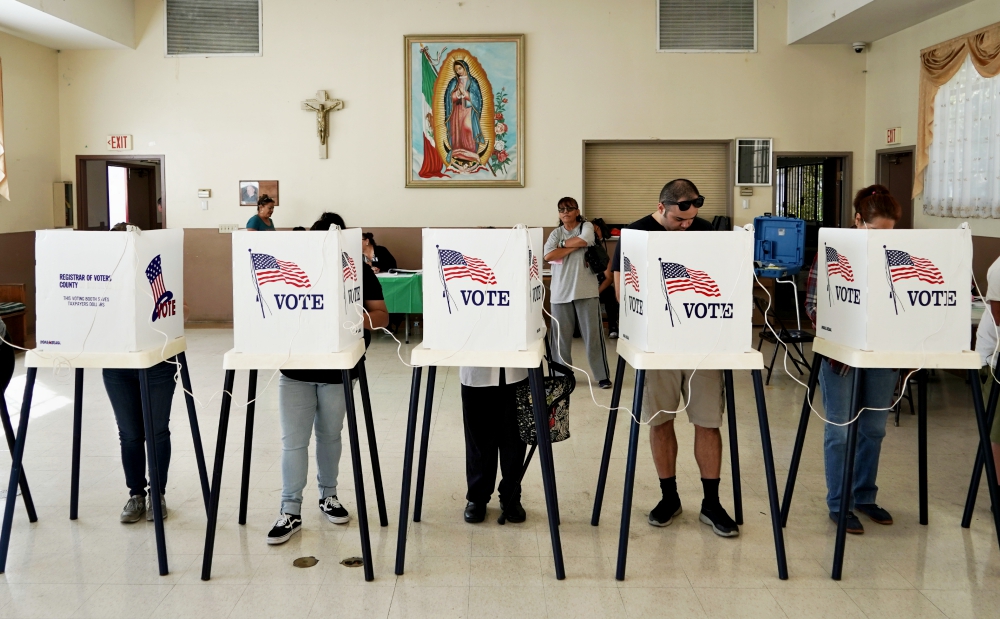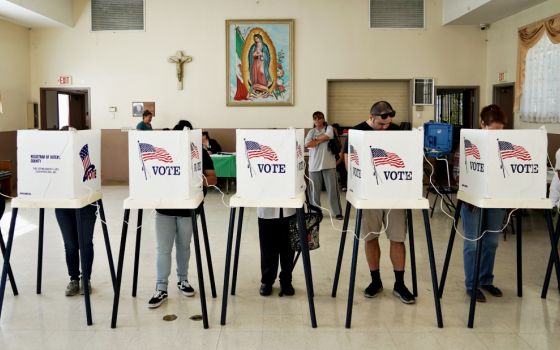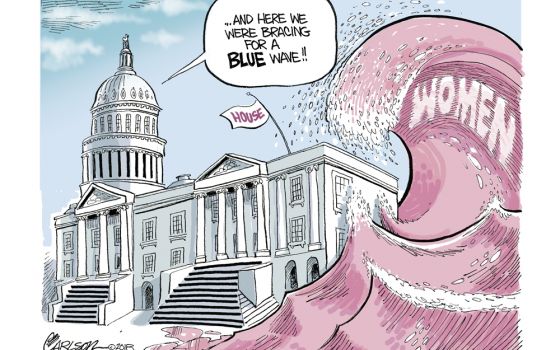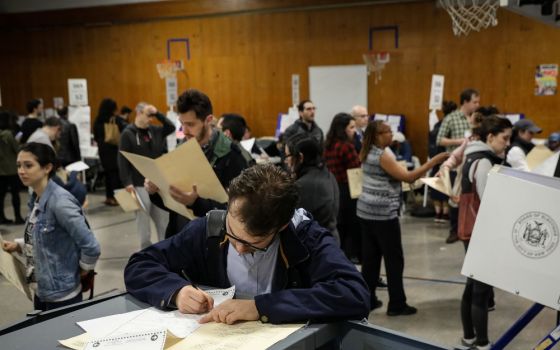
Voters mark their ballots at Assumption Catholic Church in Los Angeles during the midterm elections Nov. 6. (CNS/EPA/Mike Nelson)
The Republicans won the marquee races everyone was talking about. They won the Senate race in Texas, the governor's race in Florida and, likely, the governor's race in Georgia. But the Democrats won a substantial victory in taking control of the House of Representatives.
Thus, conventional wisdom and most of the polling turned out to be reasonably accurate this election cycle. The results provided the split decision that was expected. Everyone can claim a piece of victory, as President Donald Trump attempted to show at his combative press conference on Wednesday.
Yet, there can be no doubt that the end of one-party rule in Washington will have the most profound effect on what happens next.
The results also demonstrate unequivocally the continued divisions in our country. Turnout was up dramatically, but it was up among Democrats and Republicans alike. The idea that resistance to Trump would dominate the election results didn't materialize. It is true that many of us find the Trump presidency disturbing and dangerous. Yet millions of Americans continue to support this president.
Where do we go from here? Clearly, there is a need to heal these divisions and find common ground. We can only hope that a candidate will emerge in the 2020 presidential election from either side of the political spectrum that most Americans can rally around.
In the meantime, these next two years are critical. How will Democrats use their newfound power? They will, and they should, work to hold this president accountable. Subpoena powers will be exercised, and efforts will be made to uncover the truth of any number of activities that appear questionable. Public hearings will take place so that the American people can decide for themselves what is fake news and what is the truth of what is going on.
At the same time, Democrats must avoid piling on the president and his administration. They must carefully prioritize the most significant concerns that deserve investigation. They must appear fair and evenhanded in their approach. Talk of impeachment can only be relevant if the Russia investigation produces damaging details of wrongdoing by the president.
Advertisement
Even more important is the need to avoid further gridlock in Congress. The American people did not vote for Democrats so that nothing happens for the next two years. Democrats must work with the president. Individual Democrats need to cross the aisle to build coalitions on important issues with Republicans. Infrastructure, fixes to health care, comprehensive immigration laws, and sensible gun laws need to be on the table.
The question is not whether this president will cooperate with Democrats and help to get things done. This president will do whatever he decides to do. It is the Democrats who must show they are determined to act responsibly. They must develop and move forward on an agenda that can be seen to benefit the American people. They must reach out to persuadable Republicans in Congress to make things happen.
It is not a time for Democrats to be purists. Compromise is not a dirty word. When one considers how divided the country is, it makes no sense to insist on getting everything you want. Frankly, as Americans, we agree on almost nothing. Therefore, we must find a middle way.
If Democrats cannot conduct themselves as Americans first and Democrats second, they will not deserve to be re-elected in 2020.
[Pat Perriello is an associate professor at Johns Hopkins University who retired from the Baltimore City Public Schools where he served as the coordinator of Guidance and Counseling Services.]








